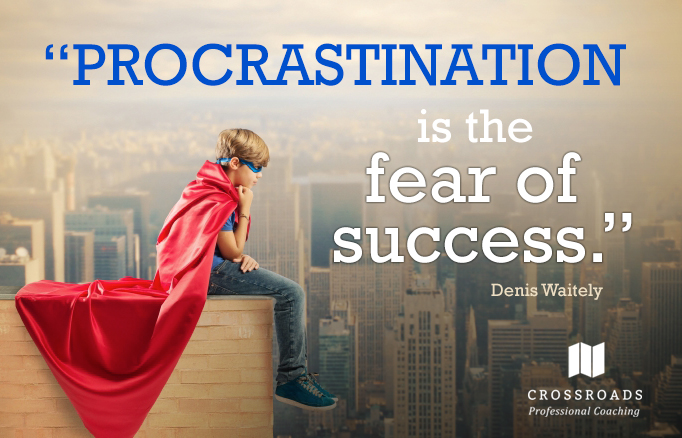- How To Overcome The Website Procrastination Blues Clues
- How To Overcome The Website Procrastination Blues Band
- How To Overcome The Website Procrastination Blues Singer
- How To Overcome The Website Procrastination Blues Chords
Overcoming procrastination is key for success in business and life. Procrastination can cause you to feel stressed, overwhelmed and put off important tasks. In this article I’m going to share 5 tips on how to overcome procrastination and and start doing what’s most important to you. Fortunately, there is a solution to overcome procrastination BEFORE it consumes your business and your life. As with many bad habits, the key to overcome procrastination is to recognize it as soon as it is happening, understand WHY it’s happening, and take active steps towards time management which will lead to better outcomes. This one’s a really effective way on how to overcome procrastination. We procrastinate because we are focussing on the short term goals i.e. The difficulties associated with the task. What we should be doing instead is focus on long term goals i.e. Why are we even doing the task in the first place. Procrastination unfortunately seems to be connected to laziness, lack of desire or just plain - 'there's always tomorrow.' I have a strong suspicion procrastination is also connected to fear, uncertainty, hopelessness, and feeling alone. At these times, deciding what to do can seem like a huge mountain to climb. You can overcome procrastination by taking some steps to learn the essentials of.
Chances are that at this very moment you’re procrastinating on something. Maybe you’re even reading this article to do so.
A while back, I took a year to experiment with every piece of personal productivity advice I could find. In becoming hyperaware of how I spent my time, I noticed something: I procrastinated a lot more often than I had originally thought. In one time log I kept, I found that over the course of one week, I spent six hours putting off tasks — and that’s just the procrastination that was apparent from my time log.
This got me thinking: why do we procrastinate, even though we know it’s against our best interests? How can we overcome it, preferably without hating ourselves or the techniques we use in the process?
To answer these questions, I spoke to researchers, and spent time digging through dozens of academic journal articles. The advice I gathered became the foundation for part of my book and, fortunately, I discovered that a lot of it works.
Why we procrastinate

One of the first things I learned was that procrastination is a human condition. About 95% of people admit to putting off work, according to Piers Steel, author of The Procrastination Equation. And I’d argue the remaining 5% are lying.
As for the phenomenon of putting stuff off, it’s “a purely visceral, emotional reaction to something we don’t want to do,” says Tim Pychyl, author of Solving the Procrastination Puzzle. The more averse you find a task, the more likely you are to procrastinate.
In his research, Pychyl identifies a set of seven triggers that make a task seem more averse. Bring to mind something you’re putting off right now — you’ll probably find that task has many, if not all, of the characteristics that Pychyl discovered makes a task procrastination-worthy:

How To Overcome The Website Procrastination Blues Clues
- Boring
- Frustrating
- Difficult
- Ambiguous
- Unstructured
- Not intrinsically rewarding (i.e., you don’t find the process fun)
- Lacking in personal meaning
On a neurological level, procrastination is not the slightest bit logical — it’s the result of the emotional part of your brain, your limbic system, strong-arming the reasonable, rational part of your brain, your prefrontal cortex. The logical part of your brain surrenders the moment you choose Facebook over work, or decide to binge another episode of House of Cards when you get home.
This article also appears in:
The Latest Research: Managing Yourself
Managing YourselfToolkit
But there’s a way you can give the logical side of your brain the upper hand. When you notice an approaching showdown between logic and emotion, resist the impulse to procrastinate. Here are the best ways I’ve discovered in my research to do that.
Reverse the procrastination triggers. Consider which of Pychyl’s seven procrastination triggers are set off by an activity you’re dreading. Then try to think differently about the task, making the idea of completing it more attractive.
Take writing a quarterly report. If you find this boring, you can turn it into a game: see how many words you can crank out in a 20-minute time period. Or if you find a work task ambiguous and unstructured, create a workflow that lays out the exact steps you and your team should follow each month to get it done.
Work within your resistance level. When a task sets off procrastination triggers, we resist doing it. But just how resistant are we?
You and Your Team Series
Staying Focused
Your Brain Can Only Take So Much Focus
- Srini Pillay
The Two Things Killing Your Ability to Focus
- William Treseder
How to Stay Focused If You’re Assigned to Multiple Projects at Once
Let’s say you have to wade through a dense piece of research for an upcoming project. To find your resistance level, consider the effort you commit to that task along a sliding scale. For example, could you focus on reading for an hour? No, that period of time still seems unpleasant. What about 30 minutes? Shorten the amount of time until you find a period with which you’re no longer resistant to the task — and then do it.
Do something — anything — to get started. It’s easier to keep going with a task after you’ve overcome the initial hump of starting it in the first place. That’s because the tasks that induce procrastination are rarely as bad as we think. Getting started on something forces a subconscious reappraisal of that work, where we might find that the actual task sets off fewer triggers than we originally anticipated.
Research suggests that we remember uncompleted or interrupted tasks better than projects we’ve finished. It’s like listening to a catchy song, only to have it unexpectedly cut off in the middle and then have it stuck in your head the rest of the day. Starting a task means you’ll continue to process it — and this makes you more likely to resume the work later on.
List the costs of procrastination. This tactic works best when you’re putting off larger tasks. While it’s not worth spending 20 minutes listing the costs of not going for your evening run, listing the costs will significantly help for a task such as saving for retirement. Add to your list all the ways procrastinating on retirement saving could affect your social life, finances, stress, happiness, health, and so on.
It’s also worth making a list of the things you put off personally and professionally, large and small, while calculating the costs of procrastination for each.
Disconnect. Our devices offer a cornucopia of distractions, whether it’s email, social media, or texting with friends and family. This is especially difficult as our work becomes more ambiguous and unstructured (two triggers of procrastination).

When you notice yourself using your device to procrastinate, disconnect. Sometimes when I’m writing, I go as far as to put my phone in another room, and shut off the WiFi on my computer. Other times, I turn to an app like Freedom or Self Control, which blocks access to distracting sites, and require me to physically restart my computer to restore access.
This may sound drastic, and it is. Disabling digital distractions ahead of time gives you no choice but to work on what’s really important.
There are proven ways to combat procrastination so that it doesn’t get in the way of accomplishing your most important tasks. The next time you resist a task, consider whether it sets off any of the procrastination triggers, work within your resistance level, force yourself to get started on it, list the costs of putting the task off, or disconnect from the internet.
If you’re anything like me, you’ll find yourself procrastinating a lot less often.
MIHS students struggle procrastination. Photo courtesy buzznice.com
Many high schoolers suffer from chronic procrastination. These students cannot complete necessary tasks and feel serious stress. Procrastinating in high school causes anxiety and drops in success, which can lead to long term problems.
High school students procrastinate for very different reasons than in middle school.
Teenagers who plan on applying to college feel a new burden upon entering high school. Suddenly, their schoolwork is more important and directly affects their future. Many students reason that if they procrastinate schoolwork, they can blame their lack of attentiveness and not their lack of skill.
Procrastination causes many problems for high school students. An obvious result of continued procrastination is a drop in grades and a decline in school success. Students who do not fully complete assignments and put off crucial studying receive poorer grades.
Procrastination also causes heightened stress. High schoolers have a heavy workload and often a busy schedule. Students who let work pile up feel the accumulation of difficult duties on their shoulders. Putting off work also constantly lowers students’ self-esteem. Procrastinators may feel they simply cannot do the task at hand and feel insecure about their ability to perform. Students need to try and get themselves out of this mindset as soon as they can before it really starts impacting their schoolwork. One way to do this is by trying to file assignments and other schoolwork into their importance and due dates. This can help you manage your workload much easier. By filing them into importance, students can focus completely on the most important file without getting distracted by a messy desk full of work. Students can look to get these from office monster – filing cabinets can be useful for students trying to make the most out of their time in education.
Psychology Today interviewed college students who claimed to consistently procrastinate in order to find long term effects of procrastination. The website’s study found that students who procrastinate caught more colds and flu, and had gastrointestinal problems. The majority of these students also had insomnia. Getting enough sleep is important for anyone, especially as we can’t function properly without it. With there being alternative solutions such as trying CBD edibles that can be found on sites like https://cannaunion.com/product-category/cbd-edibles/ or various herbal remedies, the idea of getting sleep each night may be easier than some people may have thought.
How To Overcome The Website Procrastination Blues Band
When it comes to suffering from insomnia, it then comes as no surprise to find that some people may decide to use products like sour dream strain to help them get a good night sleep. As we all know, sleep is an important factor in our day to day lives. Without it, we cannot function to the best of our ability.
In addition to causing health problems, procrastination causes general unhappiness. The Procrastination Research Group at Carleton University in Canada conducted an online survey to determine the effect of procrastination on happiness.
The results concluded that procrastination does have a negative effect on happiness. They received 2,700 responses to the question, “To what extent is procrastination having a negative impact on your happiness?” 46 percent responded “quite a bit” or “very much,” and 18 percent reported an “extreme negative effect.”
Procrastination has many negative effects, but luckily there is a simple solution that makes work easier: change your mindset.
How To Overcome The Website Procrastination Blues Singer
Some things are not optional and have to be done – in high school and in life – so look at work positively. Take into account any feelings of resistance towards your duties, and push them away.
How To Overcome The Website Procrastination Blues Chords
It’s okay to feel stressed, or like you cannot do what you need. However, you can trick your mind into being excited about work. Remind yourself of the completely satisfying feeling of completion. Assignments do not disappear, but mindful motivation will push you through the most tedious tasks.
High schoolers often feel like there is no light at the end of the tunnel, but hard work really does pay off. Stay positive and do not distress. If completing tasks starts to feel rewarding, procrastination will not persist.
